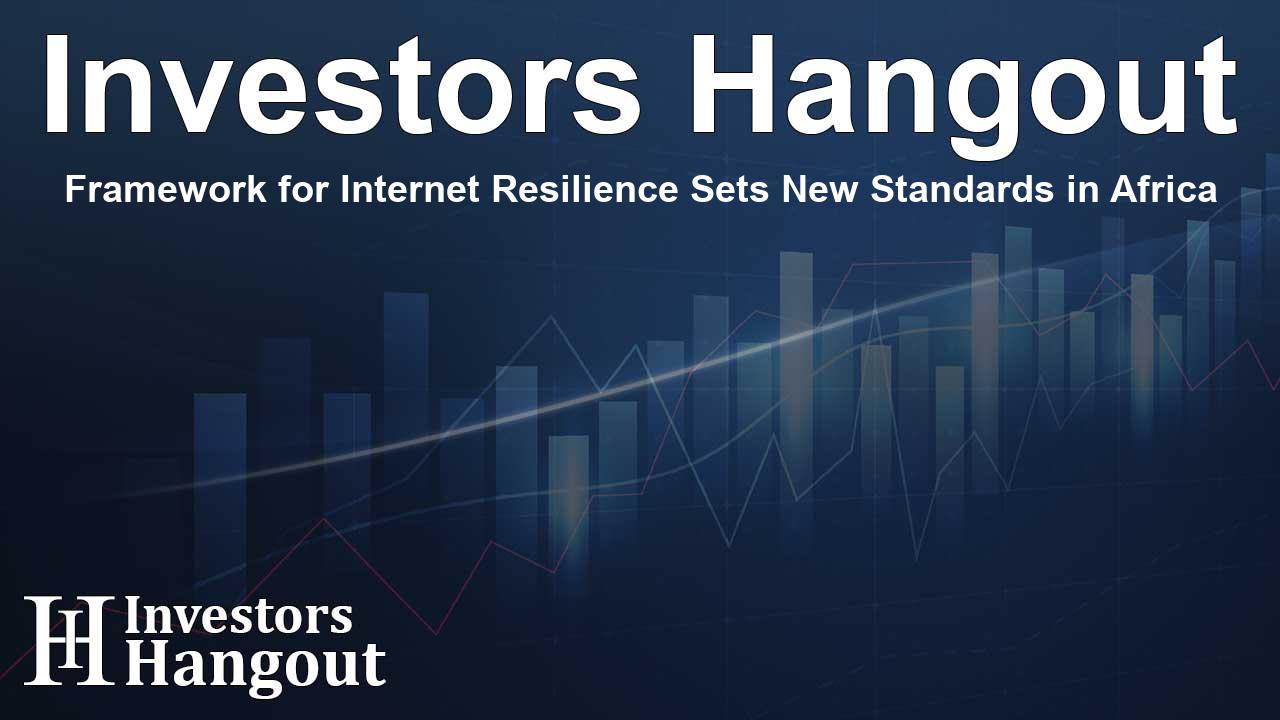Framework for Internet Resilience Sets New Standards in Africa

Framework for Enhancing Internet Resilience Across Africa
Africa's telecom leaders have rallied behind a new Model Framework designed to bolster Internet resilience continent-wide. This ambitious initiative aims to guide governments and regulators in adopting a strategic framework that focuses on important areas impacting connectivity.
Core Components of the Resilience Framework
The framework is structured around three major focus areas vital for the Internet ecosystem: the functioning of networks and Internet Service Providers (ISPs), the maintenance of critical infrastructure including power grids and cables, and the evaluation of market conditions that affect both affordability and demand for Internet services.
Implementing the Plan for Resilience
As part of the implementation, operators responsible for key elements of the Internet ecosystem—such as mobile network operators and Internet service providers—will be tasked with developing a comprehensive Plan for Resilience. This plan needs to be established within one year of the framework's official adoption.
Continuous Improvement for Sustained Connectivity
Importantly, the plan must undergo annual reviews to ensure its alignment with the entity's continuity and recovery strategies. It should delineate how organizations will integrate resilience traits such as redundancy, resourcefulness, and rapid recovery into their core operations, essential for a robust connectivity framework.
Urgent Need for Action
Key leaders like ATU Secretary-General John Omo and AFRINIC's Arthur Carindal emphasize the urgent need to adopt this framework. They warn that Africa is perilously close to facing another major digital crisis, just one cable cut or large-scale power outage away from widespread connectivity failures.
Recent Connectivity Challenges
A recent incident in West Africa involved a significant cable disruption that impacted connectivity in multiple countries for days. This instance highlights the fragility of the region's infrastructure and the critical need for improved resilience measures. Documented outages in Kenya and South Africa further underscore the challenges faced in maintaining service continuity.
Connectivity as Africa's Lifeline
Omo stated that connectivity functions as Africa's nervous system, emphasizing its essential role in supporting schools, hospitals, and markets. This new framework represents a proactive approach to safeguarding against future digital blackouts.
Collaboration for a Shared Future
In advocating for the framework, stakeholders like Arthur Carindal affirm their commitment to collaborating on initiatives that strengthen Africa's Internet infrastructure. This collaboration emphasizes the development of key policy recommendations that will enhance the resilience of Internet services.
The Importance of Data-Driven Strategies
The Internet Society, through its various contributions, is focusing on collecting vital metrics to evaluate Internet resilience across diverse countries. Initiatives like the Internet Society Pulse platform provide real-time data on availability, resilience, and security, informing the framework’s development.
Future Steps in Advancing Connectivity
Once officially adopted, the framework will be presented to member state administrations of the ATU and will subsequently be made visible to all industry stakeholders. Community involvement is key, with leaders urging member states to not only embrace this framework but also to actively partake in its implementation.
About Internet Society
Founded by Internet pioneers in 1992, the Internet Society is committed to making the Internet accessible to all. With a global presence through its chapters and special interest groups, it advocates for technology and policies that ensure an open and secure Internet for everyone.
About the African Telecommunications Union (ATU)
The ATU is an intergovernmental organization that's critical to advancing telecommunications across Africa. Representing member states and regional ICT operators, its mission is to foster digital transformation and ensure Africa's competitive stance in global digital matters.
Frequently Asked Questions
What is the purpose of the Internet Resilience Framework?
The framework aims to enhance Internet resilience in Africa by guiding operators and governments in establishing robust infrastructure and policies.
How will the framework impact Internet service providers?
ISPs and key operators will need to create and continually improve resilience plans to mitigate risks and ensure service continuity.
Why is Internet resilience important?
Internet resilience is vital for maintaining connectivity during crises, which supports essential services across sectors like education and healthcare.
Who is involved in the development of the framework?
The initiative is a collaboration between various stakeholders including ATU, AFRINIC, and the Internet Society, all working towards a common goal of stronger Internet infrastructure.
What can member states do to support the framework?
Member states are urged to adopt the framework and engage in its implementation, ensuring collaboration among all stakeholders for effective results.
About The Author
Contact Hannah Lewis privately here. Or send an email with ATTN: Hannah Lewis as the subject to contact@investorshangout.com.
About Investors Hangout
Investors Hangout is a leading online stock forum for financial discussion and learning, offering a wide range of free tools and resources. It draws in traders of all levels, who exchange market knowledge, investigate trading tactics, and keep an eye on industry developments in real time. Featuring financial articles, stock message boards, quotes, charts, company profiles, and live news updates. Through cooperative learning and a wealth of informational resources, it helps users from novices creating their first portfolios to experts honing their techniques. Join Investors Hangout today: https://investorshangout.com/
The content of this article is based on factual, publicly available information and does not represent legal, financial, or investment advice. Investors Hangout does not offer financial advice, and the author is not a licensed financial advisor. Consult a qualified advisor before making any financial or investment decisions based on this article. This article should not be considered advice to purchase, sell, or hold any securities or other investments. If any of the material provided here is inaccurate, please contact us for corrections.
